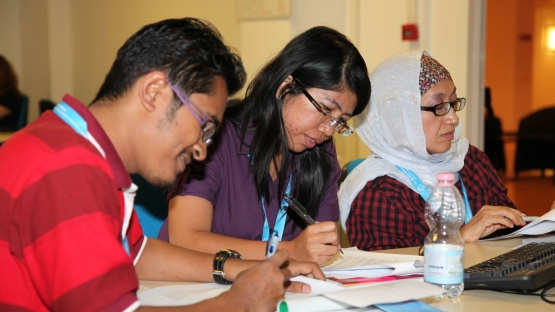Nuclear technology is used every day, in a vast number of fields ranging from medicine, agriculture and protection of the environment, to industry and energy production. Retaining and developing nuclear knowledge and capacity is essential for sustainability and future development.
The IAEA has initiated a project to develop training materials and teaching aids to support extra-curricular activities to help engage the younger generations and, hopefully, inspire students to pursue careers in nuclear science and technology.
Under the technical cooperation (TC) project 'Supporting Sustainability and Networking of National Nuclear Institutions in Asia and the Pacific Region', which aims to enhance the use of the well-established networks for knowledge sharing and education, the IAEA is supporting the development of a standard portfolio of extra-curricular materials on nuclear science and technology for secondary schools.
The purpose of the portfolio is to provide reference material that countries can use when developing/enhancing their own national education and outreach strategies and programmes. It represents a compendium of resources and activities for secondary school teachers and students, and is composed of best practices from around the world. The portfolio was developed by a specialist advisory group comprising experts from Australia, Finland, India, Israel, Japan, Republic of Korea and the United States of America, as well as IAEA staff. An accompanying set of instruction material supplements and complements the extracurricular activities and academic curriculum.
"Having this readily available and reliable reference that teachers can use for their classes will make teaching easier and might encourage more teachers to introduce nuclear sciences in their teaching curriculum", said C. Casey, an expert from Australia.
The portfolio has been drafted and is planned to be finalized early in 2014. Once the portfolio is in its final stage, a limited number of Member States will be selected to pilot the compendium as part of an initiative to introduce and expand outreach programmes on nuclear science and applications in secondary schools.


